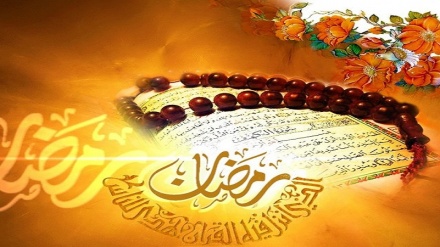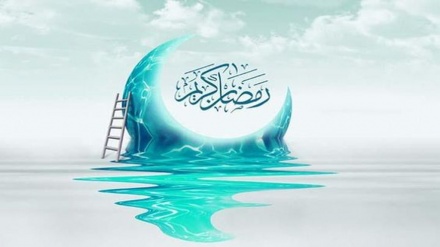Heavenly Call (27)
Welcome to the 27th episode of Heavenly Call on the occasion of the blessed fasting month of Ramadhan.
We start with the special supplication of the 27th day, please listen:
“O Allah, grant me in it the grace of the Night of Ordainment, and turn about my affair therein from hardship to ease; accept my excuses; relieve me of the burden of sins; O You who are Compassionate to Your righteous servants!”
If you remember, we discussed the issue of ridiculing others and how strongly the holy Qur'an deplores this behavior. God Almighty says in Ayah 11 of Surah Hujuraat:
“O you who have faith! Let not any people ridicule another people: it may be that they are better than they are; nor let women ridicule women: it may be that they are better than they are. And do not defame one another, nor insult one another by (calling) nicknames. How evil are profane names subsequent to faith! And whoever is not penitent – such are the wrongdoers.”
Islam highly respects the true believers and their dignity and, in no circumstances, permits their dignity to be smeared. A famous hadith stresses this fact, saying, "The status of a true believer is greater than that of the Ka'ba."
Everybody knows the status of the holy Ka'ba. Muslims across the world perform their daily ritual prayers in the direction of the Symbolic House of God; otherwise their prayers won't be accepted. They slaughter animals with face turned towards the direction of the holy Ka’ba, and they perform the Hajj pilgrimage at this most sacred spot on earth. If a person enters the Sacred Mosque (Masjid al-Haram) which encompasses the holy Ka'ba, he/she is immune and nobody can disturb him/her. All these indicate the very lofty position of Ka'ba. However, the dignity of a true believer is more than this sacred edifice of monotheism.
One of the important measures to safeguard the respect and dignity of a faithful is to conceal his/her shortcomings and misdeeds, especially if he/she has made mistakes and committed sins in the past, but has repented. Thus, nobody is allowed to expose his/her past deeds or to defame him/her.
It is recorded that one day Safiya, who had relinquished Judaism and become Muslim on the conquest of the Fortress of Khaybar by Imam Ali (AS) and married the Prophet, came to the Prophet with tears in her eyes. The Messenger of Mercy asked the reason and she answered, "Ayesha scoffs at me by calling me, "you who was born a Jewess!" The Prophet was displeased at the attitude of his other wife Ayesha, whose father Abu Bakr was an idol-worshipper before becoming a Muslim. The Prophet didn’t tell Safiya to retaliate in like manner to Ayesha, but with a smile on his face and in view of the fact that she was descended from the monotheist Israelites, he said: "Why don’t you say, 'My father is Aaron, my uncle is Moses and my husband is Mohammad?'
This constructive behavior of the Prophet shows that in dealing with others, we have to consider their positive points rather than negative ones. We should never refer to the negative points of others especially if they have repented and given up their past ideas and behavior.
It is narrated from the Prophet that he said, "Like for yourselves what you like for others."
Do we like others to divulge our evil deeds and flaws? Moreover, if we are preoccupied with our own flaws and sins we won't have the time to highlight the flaws of others. The Prophet has said: "If a servant of God conceals the secret and flaws of others in the world, God will conceal his secrets on Judgment Day."
Indeed, the concealment of our evil deeds and flaws is a great grace of God Who is aware of even our minutest acts. The Prophet also stresses that we should thank God every day for the grace He has toward us, saying, "Thank God that He has put a curtain over our sins and flaws, and has not exposed us among people."
The noble Qur'an says towards the end of the ayah that we recited to you, that those who are suffering from the moral disease of exposing others' secrets will be wrongdoers if they do not repent.
In view of this, it is great sin to expose the secrets of others since it shakes the pillars of society and undermines social bonds.
AS/ME


